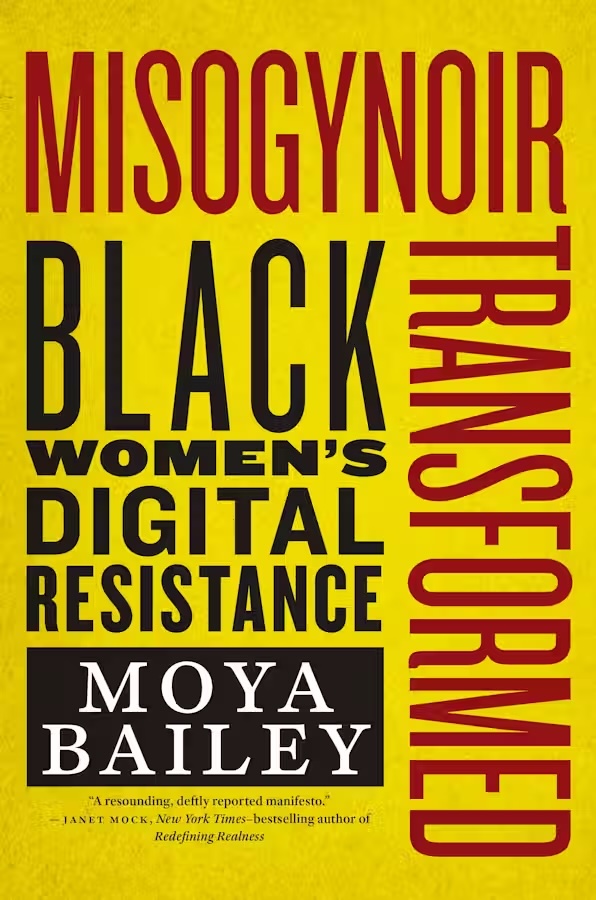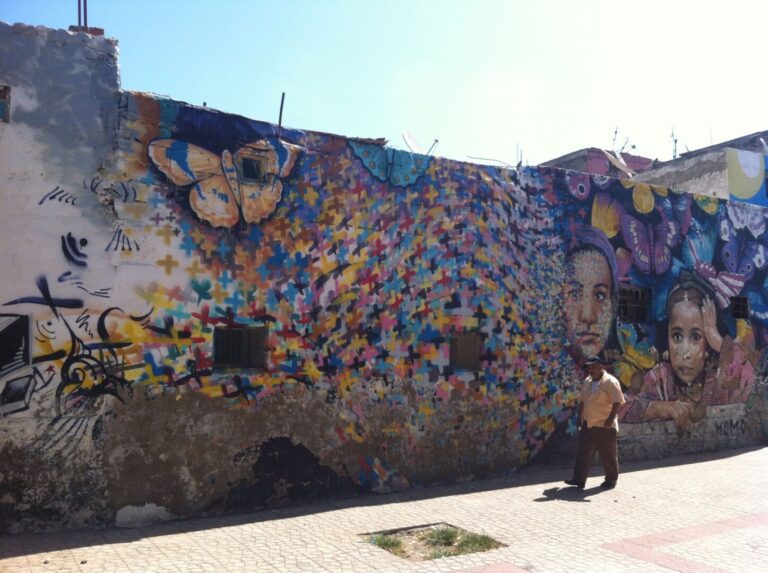Misogynoir Transformed is a pioneering work by Moya Bailey that offers a groundbreaking analysis of misogynoir and the transformative strategies for social change in contemporary digital society. Through careful analysis of media representations, web series, and social media platforms, Bailey reveals how Black women and Black nonbinary, agender, and gender-variant folks encounter and resist damaging narratives. Bailey also introduces the conceptual framework of digital alchemy to conceptualize the praxis that Black women employ to transform harmful everyday media into valuable social justice media, which functions to reduce the negative effects of misogynoir and create their own safe and inclusive community. This transformative activity highlights the dual effects of visibility—it is empowering but also precarious. Bailey’s work is evidence of how digital platforms have the positive power to reduce misogynoir and reshape the discourse on gender diversity and social justice.
Keyword: resistance
Hearing the Houma: Sound, Vision, and Urban Space in Moroccan Hip-Hop Videos
This paper seeks to engage the construction of urban “soundscapes” as a potential flashpoint for class conflict by analyzing auditory and visual representations of “the neighborhood” (al-houma) in a handful of Moroccan hip-hop videos. I begin by situating Moroccan hip-hop within transnationally circulating associations of hip-hop with “urban” life, as well as the political dynamics of North Africa’s colonial and postcolonial urban histories. I then analyze four videos comparatively, suggesting that each goes beyond lyrical and musical content of the songs to construct a sensory experience of the city—or neighborhood—for the listener-viewer. In giving attention to the political implications of each video, however, I argue that what distinguishes each is less what sort of “soundscape” emerges in his video but how each video teaches the audience to “hear” the Houma. While videos by mainstream rappers Muslim and Don Bigg figure urban space as threatening and in need of moral recuperation, they enact these pedagogies largely through indexical figurations of their respective soundscapes, that is, by directing the listener to attend to certain (inaudible) sounds and to interpret them in a certain way. By contrast, a video by El Haqed, known as a more staunchly oppositional figure, visually and sonically constructs a peri-urban lifeworld conditioned by neoliberal economic abandonment yet resistant to the postcolonial gaze. This contrast, I suggest, raises crucial questions about how hip-hop is linked to broader dynamics of cultural appropriation and “resistance” politics.
Within and Against Racial Segregation: Notes from Italy’s Encampment Archipelago
The pandemic brought migrant farm workers into the limelight once again, as has happened repeatedly in the last three decades, in Italy as in many other parts of the world. Here I examine how intersecting and sometimes conflicting discourses and interventions, that have this biopolitically conceived population as their object, decide upon these subjects’ worthiness of attention, care, and sympathy through criminalizing, victimizing, and humanitarian registers. I reflect on some of the affective dynamics that sustain both the governmental operations through which these populations were (sought to be) managed and reactions against them from a situated perspective, as an accomplice to many of the forms of struggle in which migrant farm workers have engaged in the last decade in Italy. The stage for many such occurrences is what I have elsewhere defined as the “encampment archipelago” that many such workers, and particularly those who migrate from across West Africa, inhabit—labor or asylum-seeker camps, but also slums or isolated, derelict buildings, and various hybrid, in-between spaces among which people circulate.
Review of Policing Life and Death: Race, Violence, and Resistance in Puerto Rico by Marisol LeBrón (University of California Press)
Using a multifaceted and transdisciplinary approach, Marisol Lebrón analyzes the development of punitive governance in Puerto Rico. Lebrón’s approach pays particular attention to how capitalist colonial settings in Puerto Rico lead to the categorization of racialized, gendered, and classed populations as problematic subjects who then become the target of state violence as public policy. Intertwined with the state and its legitimacy, the book also looks at how these populations resist repressive policies and affect social relations of power on the island.
Review of Crip Times: Disability, Globalization, and Resistance by Robert McRuer (NYU Press)
In his new book Crip Times: Disability, Globalization, and Resistance, Robert McRuer offers his notion of “crip time” as an analytic through which we may critique the spatio-temporalities of austerity, late capitalism, and the cultural logic of neoliberalism. McRuer’s position is that disability is at the core of a global politics of austerity and of neoliberalism. What does it mean that disability is central to a global politics of austerity? For McRuer, it means that thinking about austerity through “crip time” can highlight an ongoing politics of representation of disability. That is, neoliberalism actively produces certain ways of being disabled that are conducive to its continued operation. But, “crip time” points to the ways in which this politics of representation does not fully capture disability. Disability exceeds austerity and neoliberalism. Crip Times, then, offers a critical examination of how disability is represented within the cultural logic of neoliberalism. At the same time, McRuer cautions against, as some past projects in disability and queer theory have done, fully rejecting or embracing the politics of identity, representation, and rights.
Introduction
Gwyneth Shanks discusses the scope of Not a Trump Issue, which privileges resistant actions that are never reducible to nor fully concerned with the Trump Administration’s policies and actions. In the wake of the Administration’s tacit and overt support of white supremacist and sexist ideologies, deregulation, global climate change denial, and attempts at voter suppression and the criminalization of communities of color, “Not a Trump Issue” questions how radical, anti-racist, feminist scholars, artists, activists, and educators can enunciate their own forms of resistance. The issue privileges actions that are engaged with surfacing deeper historical structures of inequity or dispossession; the issues at stake for the authors in “Not a Trump Issue” is not not Trump nor our political present, but always already our collective pasts.





